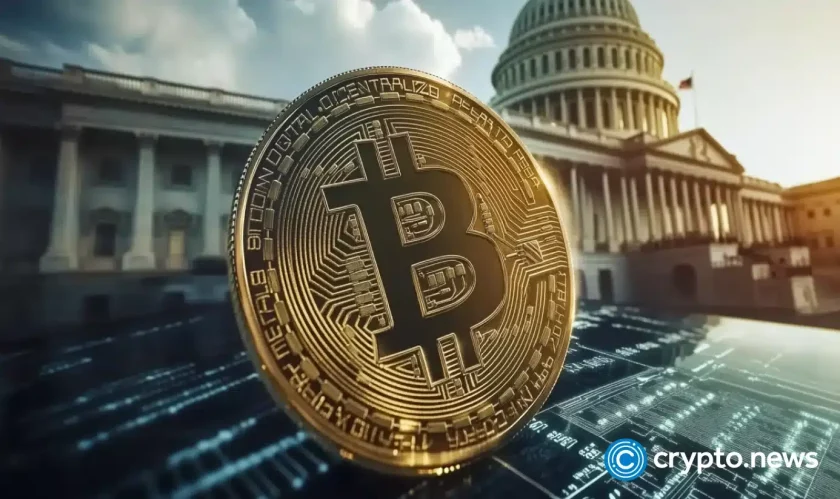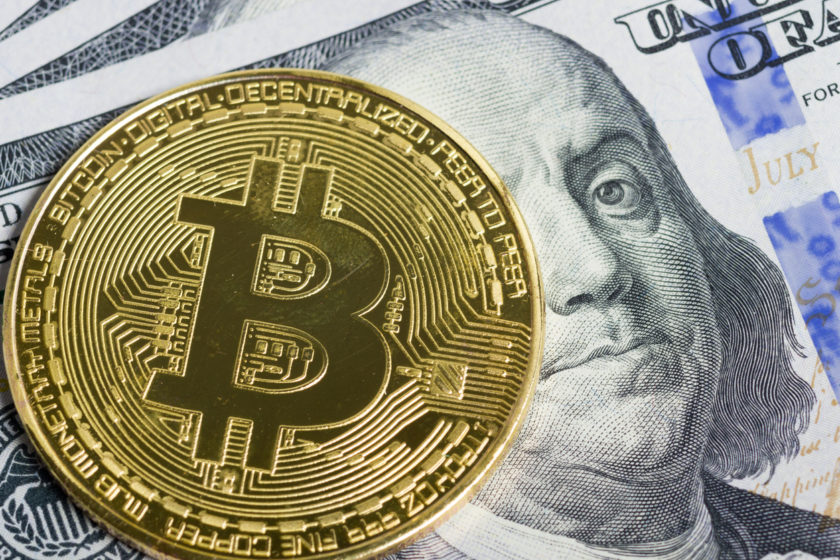The Bitcoin Cash Hard Fork–A Who’s Who and Everything You Need to Know
November 14, 2018 by Paul de Havilland
The November 15th, 2018 Bitcoin Cash hard fork is fast approaching and is set to be the second-most controversial fork thus far in the 10-year history of cryptocurrency (second only to its original fork from bitcoin itself). This is not just another Rhett Creighton shitcoin fork for fun. It involves power, politics, and people with lots of money and even more ego publicly trading blows to get the upper hand. So who are the main players behind the fork, and where do they all stand?
Also read: Fork Wars: 66% of Bitcoin Cash Miners Now Backing Satoshi Vision
Subscribe to the Bitsonline YouTube channel for great videos featuring industry insiders & experts
ABC … Easy As 1, 2, 3 …
Amaury Sechet
Ahead of its biannual upgrade, in July 2018 Bitcoin ABC developer Amaury Sechet proposed a pre-consensus idea for the protocol amendment, allowing BCH network participants to “agree as much as possible on what the next block is going to look like.”
The idea behind pre-consensus was to generate a stronger zero-confirmation guarantee on the BCH blockchain, while also allowing it to scale more effectively.
Zero-confirmation transactions place speed and convenience ahead of security, and if Bitcoin Cash has an ethos it is in striving to be a currency that will be used, spent, and widely accepted. That ethos is what BCH proponents might call faithfulness to Satoshi’s vision of a genuinely peer-to-peer payments system.
If a zero-confirmation guarantee could be made less risky, the ABC argument went, it would likely encourage the more widespread use of Bitcoin Cash.
Sechet’s idea was presented in a paper he published here. Bitsonline reached out to Sechet for his feelings toward the potential split. Sechet — presumably referring to Dr. Craig Wright — appeared to dismiss the SV side’s commitment to the fight:
“A barking dog never bites.”
Jihan Wu & Bitmain
Bitmain, the Chinese mining giant, stood behind Sechet’s idea. CEO Jihan Wu refers to Craig Wright as “Fake Satoshi.” In the spirit of the heat of the debate raging around the forthcoming protocol change, Wu tweeted:
The whole BCH community are working together to kick Fake Satoshi out. The resisitence against cult leader proves the inner strength and sophistication of the BCH ecosystem!
— Jihan Wu (@JihanWu) November 9, 2018
It is important to realize that despite Bitmain’s size and presence in the crypto industry. the ABC side only enjoys around 17 to 30 percent of the hashing power. Insofar as miners are the ones who choose which blocks to verify and which to reject, Bitmain-backed ABC appears to be losing the fight — at least for now.
Dr. Craig Wright
nChain CTO Dr. Craig Wright is possibly more divisive in the crypto community than Roger “Bitcoin Jesus” Ver. In response to the ABC proposal, Wright proposed Bitcoin SV — which stands for Satoshi Vision — a roadmap said to be based on fidelity to the original specifications in Satoshi’s 2008 whitepaper, with the addition of 128MB block sizes.
The race for 128MB block sizes, in Sechet’s view, would be irresponsible if done before the network were ready for it. Nevertheless, Bitcoin SV currently enjoys majority hash-power backing. Many suspect the prevailing anti-Bitmain sentiment is driving support for Wright and Bitcoin SV, rather than any overwhelming affection for the doctor himself.
Craig Wright’s alleged communications to Roger Ver, including language that suggested he would sabotage Bitcoin ABC if it were to win the battle, would suggest a debate over technical proposals — albeit backed by big money miner interests — has reached epic proportions.
Due to previous objective reporting, Craig Wright has blocked this author from viewing his Twitter profile. However, Dr. Wright has been almost live-tweeting his commentary on the affair, railing against the actions of opponents from Bitmain and Bitcoin ABC developers to “anarchists” who think Bitcoin is designed to route around governments and laws.
Sorry, this is what Bitcoin was always about. It is not that you do not like it. That you think it is “censorship resistance” and that anti-state crap.
That was NEVER the point of Bitcoin.
Bye ABC pic.twitter.com/JRydmkna2D
— Dr Craig S Wright (@ProfFaustus) November 13, 2018
Wright remains confident that Bitcoin SV and CoinGeek will triumph in the “hash war,” quoting Satoshi Nakamoto who said: “This is a design where the majority version wins if there’s any disagreement, and that can be pretty ugly for the minority version and I’d rather not go into it, and I don’t have to as long as there’s only one version.”
Relatedly, Wright has also proclaimed there will be “no split” on November 15th as fork buzz has reached a fever pitch in the BCH community.
No split
— Dr Craig S Wright (@ProfFaustus) November 13, 2018
Jimmy Nguyen
Jimmy Nguyen, CEO of nChain Group is a Wright ally and supporter of the Bitcoin SV camp. And if his use of a still from the astonishing Kill Bill is anything to go by, he’s certainly ready for a fight:
Prepped and ready for #BCH #HashWar. Let’s defend the #SatoshiVision of #Bitcoin to WIN. pic.twitter.com/KyCFQwcc36
— Jimmy Nguyen (@JimmyWinMedia) November 12, 2018
CoinGeek, SVPool, BMG Pool, Okminer, and Mempool
These miners represent around 73 percent of the BCH hashing power, and all support Bitcoin SV. With two days to go ahead of the fork, Wright’s SV gang looks to come out on top in a battle of hashing power. The chart below, tweeted by Ryan X Charles, breaks hashing power down by miners:
74.31% SV
This means SV will win unless ABC has a good deal of hidden hash power that shows up during the battle. pic.twitter.com/jolFySvCh6
— Ryan X. Charles (@ryanxcharles) November 12, 2018
Coin Dance confirms that SV appears to be favored in terms of hashing power, up from 66 percent only two days ago, so momentum seems to be swaying Wright’s way in the event of a contentious and irreversible bitcoin cash hard fork.
Calvin Ayre and CoinGeek
Calvin Ayre is a businessman who owns the mining and publishing enterprise CoinGeek. Ayre’s support for SV is fundamentally linked to his direct competition with Bitmain. In fact, in Bitsonline‘s correspondence with Mr Ayre, he stated:
“There is a very big reason why Jihan doesn’t want BCH to be Bitcoin. If it is Bitcoin, it becomes bound to the whitepaper. Being bound to the whitepaper means that he doesn’t get his sought after reduced block times, or the ability to subvert Nakamoto consensus… We want to prove Bitcoin was designed from scratch to be sound money for the world and to prove that it works already as such on the BCH chain. The segwit coin is no longer a currency and so BCH is the only one that is and the White Paper is very clear about being lead by the miners so all we are trying to do is restore Bitcoin to its roots. As for why? That’s very straightforward; sound digital money creates economic freedom for the world.”
Ryan X Charles
As his tweeted graph above suggests, Ryan X. Charles of the Money Button tipping tool project tweeted that “SV will win unless ABC has a good deal of hidden hash power that shows up during the battle.”
This would appear to support Ver’s argument that the fight is particularly a battle of hashing power, rather than ideology. Ryan Charles is principally interested in instant transactions and low fees, but would, either way, prefer no split over minor details.
Roger Ver
If Twitter were the Canadian province of Newfoundland, Roger Ver would be a baby seal, mercilessly clubbed every time he dared raise his head — often without appropriate cause. That aside, BCH’s controversial early adopter, who once infamously claimed “bitcoin cash has more bitcoinness than bitcoin core” has implied there may not be a hard fork at all, likening the situation to Y2K.
If there were to be a split that created two viable coins, Ver’s public support is for bitcoin (by which he means bitcoin cash) being usable as cash for the world, and in his opinion Bitcoin ABC is “better suited to that.”
Ver believes the differences relate to “the order of operations,” or when changes are implemented and the pace of change, as opposed to fundamental differences between which direction to head.
Justin Bons
Justin Bons of Bitcoin Unlimited proposed a middle ground to the incompatible tweaks. Bitcoin Unlimited suggested that miners vote for individual changes to be activated over time as consensus is reached. Bons and Bitcoin Unlimited are in favor of finding a solution that avoids a split.
Like partisans in a major political election, those with the strongest opinions are unwilling to publicly contemplate defeat or speculate on what strategy they may adopt if their side is the official minority. As a result, it’s difficult to get a true sense of what they’ll do — so most are sticking to bravado and warning of dark times should their opponents triumph.
The Bitcoin Cash Hard Fork — Who Gets To Decide?
Ryan X. Charles raises an excellent point. As an entrepreneur building a business based on bitcoin cash, he finds himself potentially caught between miners’ and developers’ interests without being adequately included in the discussions.
With support coalescing around Bitcoin SV, it appears a bitcoin cash hard fork would be in favor of their upgrade proposals, leaving Bitcoin ABC to linger and perhaps fade to zero value. However, American exchange Poloniex ran an experimental pre-fork trade of Bitcoin ABC (BCHABC) and Bitcoin SV (BCHSV) to ascertain public sentiment in the event of a bitcoin cash hard fork resulting in two viable coins.
BCHABC remained stable at around $500 USD, while BCHSV fell to as low as $63. It’s a small sample size to gauge, but the results showed the investing public may be on the ABC side as miners are seemingly supporting SV.
What’s your take? Which version would you like to see win out if there is a bitcoin cash hard fork, or would you prefer no chain split at all?
Images via Pixabay




